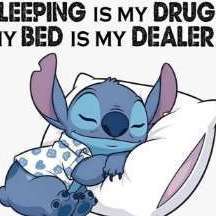-
Welcome to Celiac.com!
You have found your celiac tribe! Join us and ask questions in our forum, share your story, and connect with others.
-
Celiac.com Sponsor (A1):
Celiac.com Sponsor (A1-M):
-
Get Celiac.com Updates:Support Our Content
Couple Of Questions, Lol More Like A Few Maybe
-
Get Celiac.com Updates:Support Celiac.com:
-
Celiac.com Sponsor (A17):
Celiac.com Sponsor (A17):
Celiac.com Sponsors (A17-M):
-
Recent Activity
-
- trents commented on Scott Adams's article in Winter 2026 Issue11
Can You Really Trust Gluten-Free Menus? What Every Celiac Needs to Know Before Eating Out
@Brenda Sanchez, you must have a true allergy to wheat or some other ingredient that was in that pizza since a celiac gluten reaction isn't the same as anaphylaxis.- cross contamination
- dining
- (and 8 more)
-
0
-
- Brenda Sanchez commented on Scott Adams's article in Winter 2026 Issue11
Can You Really Trust Gluten-Free Menus? What Every Celiac Needs to Know Before Eating Out
I tried gluten-free take and bake pizza. Went straight into anaphalaxis!! I'm not trying to bash any restaurants but 16 year old kids don't really care ( I'm sure the gluten-free crust was rolled on the same stainless steel table as the regular crust was rolled on) I believe Cross contamination almost killed me that day!! Is it just me but it feels like...- cross contamination
- dining
- (and 8 more)
-
- trents replied to Atl222's topic in Post Diagnosis, Recovery & Treatment of Celiac Disease6
Increased intraepithelial lymphocytes after 10 yrs gluten-free
Cristiana, that sounds like a great approach and I will be looking forward to the results. I am in the same boat as you. I don't experience overt symptoms with minor, cross contamination level exposures so I sometimes will indulge in those "processed on equipment that also processes wheat . . ." or items that don't specifically claim to be gluten free but...
-





Recommended Posts
Archived
This topic is now archived and is closed to further replies.